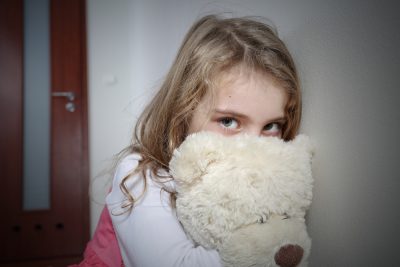
Children who live through an event that could have caused themselves or someone else to be seriously injured or killed may experience symptoms of anxiety and depression in the weeks following the trauma.
Symptoms that last more than one month, and get in the way of daily life, may be indicative of Post-Traumatic Stress Disorder, or PTSD.
What events cause PTSD in children?
- Physical abuse
- Sexual abuse or violence
- Natural or human-made disasters, such as floods or fires
- Witnessing violence, such as violent crimes (e.g. kidnapping), domestic violence, or war
- Motor vehicle accidents such as car or plane crashes
How do I know if my child has PTSD?
Symptoms vary depending on the child’s age and maturity, and may include:
- Emotional problems, such as fear, worry, sadness, anger, feeling alone, low self-confidence, lack of trust in others
- Recurrent nightmares relating to the trauma
- Intense distress when exposed to reminders of the event, and attempts to avoid these
- Re-enacting the trauma in play or drawings (e.g. drawing an aspect of the event)
- Younger school-age children may recall aspects of the trauma in a jumbled manner, and believing warning signs predicted the trauma. Thus, they may become vigilant for future warning signs to avoid future traumas
- Adolescents are more likely to experience flashbacks of the trauma or problems remembering parts of the trauma. Impulsive and aggressive behaviours such as self-harm, drug and alcohol abuse, risky sexual behaviour may also occur
What type of therapy can help?
Research shows that Trauma-Focused CBT (TF-CBT) is a safe and effective treatment for children and adolescents with PTSD. TF-CBT seeks to change the child’s thoughts or beliefs about the trauma that is not correct or unhelpful (e.g. “others cannot be trusted”). Where children are distressed by memories of the trauma, recalling these slowly and appropriately can help the child relax when memories come up and to learn that their memories are safe.
Want to know more? Contact Life & Mind Psychology on (02) 8559 0704. Our trained Psychologists can help you or your child to overcome such difficulties.
